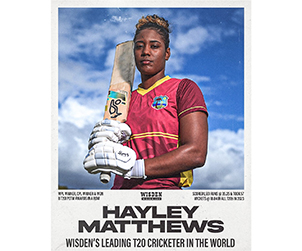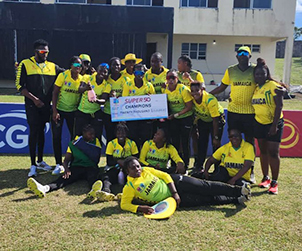By WIPA
KINGSTON, Jamaica -“I need to let people know what really happened, man. I am disappointed in the New Zealand Immigration system. I am very disappointed.” Franklyn Rose, a former West Indian pacer, repeated woefully before vocalizing his story about being locked-up abroad and then deported. The following is description of events, recounted by Rose.
Rose commenced his professional contract with New Zealand Cricket playing and coaching at the club level in 2010. He played two (2) thrilling years at the club level before his contract ended, with high hopes of retaining a new one. This, however, did not happen for the former West Indian player.
In 2012, Rose was victim to a traumatic racial assault – one that changed his life forever. Four (4) Caucasian men slurred racially discriminatory words while attacking him in attempt to steal his car. “They beat me down. One [guy] missed my head and chopped me on the hand.” explained Rose. The former cricketer was subsequently admitted in the hospital in the Intensive Care Unit for three (3) days before being released prematurely. “The nurses kicked me out, [they] said they needed to care for other patients. And after a day, my friend had to take me back to the hospital. I was having some serious pains.” Rose said. “The doctors told me I had a blood clot in my lungs and I had nerve damage in my hand.” His cricket career was seemingly over. Irrespective of his medical condition, Rose was once again thrown out of the hospital after three (3) days.
A few days later, Rose had to be taken back to the emergency room. The public hospital refused to treat him. “They thought that I was addicted to drugs or pain medication or something. They knew I was sick though; that I had a blood clot. I ended up going to a private hospital instead.” said Rose. The refusal to treat him, Rose believed, was racially inspired as well. He emphasized that the private hospital fees ranged as high at $1500 USD a day, which he had to pay out-of-pocket. He was discharged after a week.
“I was prescribed very strong medication; Warfarin. That’s a blood thinner.” Rose said. “I also had internal bleeding in my brain. That meant more hospital fees and medication, and I was advised by the doctors that I could not travel by air.” He explained that the severity of his health and the intake of these drugs disallowed him from flying back home to Jamaica. Rose stayed in New Zealand for another two years, whilst seeing various health specialists per week to assist with his slow recovery.
A week prior to Rose’s attack, he had a promising and continuous future playing in cricket. The transition to being bedridden with no source of income was both unpredictable and calamitous. Depression quickly set in and inspired a feeling of hopelessness for the former cricket.
One morning, the police came knocking on my door. They questioned me about my immigration status and asked for my medical documents. I told them everything and gave them all my documents” Rose said. “They put me a reporting order. I had to report to the police station every Wednesday at 9:00am. I did that religiously.”
Rose stated, “Everything was ok up until eight weeks ago. The police came to my house at 6:00am and dragged me out. That was the last time I saw my house.” The policemen that escorted Rose and told him that he was under investigation for an alleged rape incident. “I was so confused. I know that it was a lie and they treated me like I was nothing.” Upon his arrival to the police station, he was questioned once again by the police about his immigration status and then thrown in jail. Rose was then advised that, irrespective of his medical condition, he would be deported due to his overstay.
He was taken to court and advised by the judge that there were no flights available for his deportation. “They threw me in prison for ten (10) days, among murderers, rapists and other convicts. It was crazy, I know I didn’t belong there.” Rose said. “I couldn’t get to use the shower. I couldn’t brush my teeth for ten days and I didn’t even get my medication until after eight days of being locked up. I could have died in that cell. I was so depressed.” On the 11th day, Rose was taken back to court and then advised once again that there were no flights available. “They said I would have to go back to prison for another twenty-eight (28) days. I know for a fact that there were flights to and from New Zealand every day. That was ridiculous.”
Rose recalled his most scarring experience in prison “I was finally given shower privileges, but no one told me that each shower lasted for only 5-minutes. They cut off the water while I was soaped up. I had to wash off myself with the water from the toilet.” Rose explained that he subsequently suffered from blisters and growing lesions on his skin but was denied medical attention.
After spending thirty-eight days in prison, he was taken out of his cell and escorted to the airport. “They put me in one of those prison trucks. They treated me like a criminal. When we got to the airport, two armed police guys were behind me the whole time with huge guns.” He was then seated at back of the plane and placed under high security. Rose was finally going home.
To date, there has been no arrest related to his assault. “I reported the incident to the police, but because of the colour of my skin they thought I was in a gang or something.” Rose contends that the authorities did not treat the matter justly and that it was not properly investigated.
Franklyn Rose’s attorney is currently pursuing the matter. He however, he believes it is important to recount his story for public information on racial profiling predominantly Caucasian environments. “Yeah, I want people to understand my side of the story; to set record straight” Rose said
Rose is looking forward to his full recovery, enabling him to once again make a contribution to cricket. In concluding the interview, he said “I want to give back to cricket in some way. I’m just glad to be back.”






















